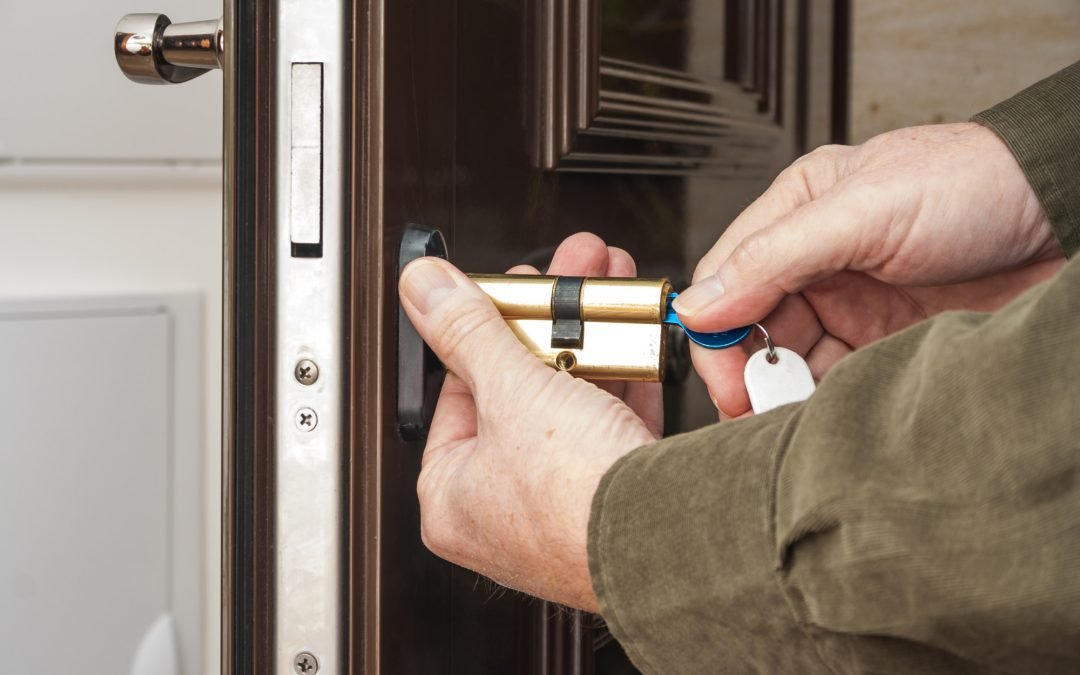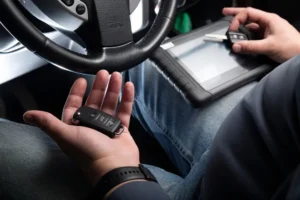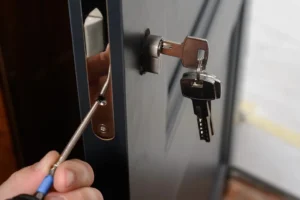When you need a locksmith, whether it’s for a lockout, a broken key, or to upgrade your security system, finding a trusted and reliable professional is crucial. Unfortunately, the locksmith industry, like many others, is also susceptible to fraud. A fraudulent locksmith can take advantage of your situation, causing not just financial loss but also compromising your home’s security.
Understanding the common characteristics of a fraudulent locksmith is essential to avoid falling victim to these scams. Let’s take a closer look at how to spot a fraudulent locksmith and what steps you can take to protect yourself. If you are in Philadelphia and need a trustworthy professional, it’s vital to know the signs that help identify a legitimate locksmith in Philadelphia.
Unclear or Non-existent Business Information
One of the first red flags when hiring a locksmith is the lack of transparency regarding their business information. A reputable locksmith in Philadelphia will have a registered business name, address, and contact number that is easy to find and verify. Fraudulent locksmiths often operate out of temporary locations, without an actual business address, and use untraceable contact numbers.
Before hiring a locksmith, do some research. Look up their business online and check for a physical location and customer reviews. If you find no verifiable details or if they provide vague information, it’s a sign that you may be dealing with a scammer.
Extremely Low or High Quotes
Another common sign of a fraudulent locksmith is offering suspiciously low or high quotes for their services. Scammers may advertise incredibly cheap rates, only to increase the price once they’ve started the work, using tactics such as adding hidden fees or charges that were never mentioned upfront.
On the other hand, some fraudulent locksmiths may quote excessively high prices, especially if you’re in an emergency situation like a lockout. A locksmith in Philadelphia should provide you with a fair estimate based on the complexity of the job. A reputable locksmith will assess the situation and give you an honest, upfront quote before proceeding.
Unmarked Vehicles and Lack of Identification
When a locksmith arrives at your location, they should be driving a clearly marked vehicle with the company’s logo and contact details. Fraudulent locksmiths often drive unmarked or generic vehicles to conceal their identity. They may show up in cars that look like they belong to any other person, with no company logo or identification.
A trustworthy locksmith in Philadelphia will arrive in a vehicle that represents their business and will also carry proper identification. They should have a professional appearance, with the company name visible on their uniform and any tools or equipment they bring. If a locksmith doesn’t have any company identification, it’s best to reconsider your decision and look for another professional.
No License or Insurance
In many places, including Philadelphia, licensed locksmiths must undergo specific training and certifications to practice their trade. Fraudulent locksmiths typically do not have the proper credentials, as they aren’t invested in providing quality service. A locksmith in Philadelphia should be able to show their license and insurance coverage upon request. These credentials protect you as a consumer, ensuring that you’ll be covered if there are any issues during the service.
Before hiring a locksmith, ask for their license number and proof of insurance. If they hesitate or refuse, it’s an immediate warning sign. In some areas, it’s illegal to operate as a locksmith without the necessary certifications.
Read More: How To Avoid Locksmith Scams
Lack of a Written Estimate
A professional locksmith will always provide a written estimate before starting any work. This written estimate should outline the total cost for the job, including labor, materials, and any additional fees. Fraudulent locksmiths, on the other hand, may only give you a verbal estimate or provide a vague explanation of their pricing. This can leave you open to surprises when the job is completed.
Always ask for a written estimate from a locksmith in Philadelphia. A legitimate locksmith will take the time to give you a detailed estimate and explain the costs. If they refuse or give an unclear estimate, walk away and find someone else.
High-Pressure Tactics
Fraudulent locksmiths often employ high-pressure tactics to rush you into making decisions. They may try to intimidate you into accepting their offer, claiming that you need immediate repairs or that the situation is more urgent than it actually is. This is particularly common in emergency situations when you might already feel stressed or desperate for help.
A professional locksmith in Philadelphia will never use scare tactics or force you into a decision. They’ll calmly assess the situation and give you options for moving forward, without pushing for an immediate commitment. If you feel pressured or uncomfortable, trust your instincts and look for another locksmith.
No Physical Presence or Office
A fraudulent locksmith often operates without a physical office, relying solely on phone calls and online advertisements. They may use a local phone number or a generic website with no clear indication of their physical location. This can make it difficult to track them down if you have any issues after the service.
A legitimate locksmith in Philadelphia will have a physical office or storefront. They’ll be proud of their business and transparent about their location. It’s a good idea to visit their office or check their business online for more details before hiring them.
Using Outdated or Unprofessional Equipment
Another way to identify a fraudulent locksmith is by the equipment they use. A reliable locksmith in Philadelphia will carry modern, professional tools to handle any job efficiently. Fraudulent locksmiths may use outdated or low-quality tools, leading to subpar work or even damage to your locks.
When hiring a locksmith, take note of the tools they use. Professional locksmiths will have the right equipment to handle all types of locks and security systems, from traditional door locks to modern smart locks. If you notice that the locksmith doesn’t seem equipped for the job, it’s better to seek a different professional.
Read More: Importance of Rekeying Your House
Inconsistent or Unprofessional Behavior
Finally, observe the locksmith’s behavior. A fraudulent locksmith may act unprofessional, be rude, or provide inconsistent answers. They might give vague explanations or avoid answering your questions directly. A legitimate locksmith in Philadelphia will be professional, courteous, and eager to answer all of your questions clearly and confidently.
When hiring a locksmith, trust your instincts. If the locksmith is unprofessional or doesn’t seem to know what they’re doing, it’s a clear sign to move on.
Protect Yourself from Fraudulent Locksmiths
To protect yourself from fraudulent locksmiths, always take the time to research the company and read reviews from previous customers. Don’t just settle for the first locksmith you find online or in the phone book. Call a few locksmiths, ask questions, and compare prices and services before making your decision.
A reliable locksmith in Philadelphia will have a good reputation, fair pricing, proper licensing, and the necessary credentials. Don’t be afraid to ask questions or request documentation. By doing so, you can ensure you’re hiring a trustworthy professional and not a scammer.
Conclusion
The locksmith industry is a vital service, but it’s essential to be cautious when choosing a professional to handle your security needs. Understanding the characteristics of a fraudulent locksmith can help you avoid scams and ensure that your property remains safe and secure. Always research potential locksmiths, ask for credentials, and be wary of any red flags during the hiring process.
If you’re in need of a reliable locksmith in Philadelphia, make sure to choose a certified, experienced professional who is transparent and trustworthy. Protect yourself from fraud and ensure that your home and belongings are in safe hands.








